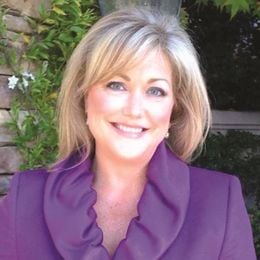When Menopause and Caregiving Collide
How women can handle two life passages that can cause stress
Over a recent brunch with female boomer friends, our conversation turned to two big events we are all experiencing: entering the age of menopause and becoming caregivers to our parents. The epiphany at the heart of this discussion was that both rites of passage are about losing something important to us.
“When I was officially in menopause, I was caring for my mom who was dying from cancer,” said Mary, 62. “Losing my youth and my mom at the same time sent me into a cloud of depression for a few months.”
My friend Sue, 54, experienced menopause in her late 40s and was considered a Sandwich Generation caregiver. “I found myself angry with everyone and everything during that period of my life,” said Sue, who is typically a funny, sunny personality. “I hated my job and my boss’s inability to make decisions, I hated my dad for smoking all his life, which I believe gave him lung cancer, I hated my kids for being so noisy all the time and I hated my husband for ignoring the overflowing kitchen trash can every week of our 20-year marriage. It took me time to realize my anger was over losing control of my younger self and losing my dad.”
(MORE: Is Menopause Ruining Your Relationships?)
The average profile of a caregiver is a woman 48- to 49-years-old, according to the National Alliance for Caregiving and menopause typically spans ages 45 to 55. Both life passages are relatively recent. During the Roman Empire, the average person lived to 24; in 1900 it was 47. Not a lot of caregiving and menopause happening in those times. But today, the bonus of longevity in our modern era includes these twin challenges for 50-something women.
Similarities We Cannot Ignore
Increased stress. Insomnia. Weight gain. Fatigue. Anxiety. Depression. All of these symptoms are related to both menopause and caregiving.
According to Carolyn Dean, author of Menopause Naturally, the stress of caregiving and menopause simultaneously is a “vicious cycle” that exacerbates menopausal symptoms and can ultimately impact a caregiver’s overall health and ability to care for their loved one.
Dean advocates a nice long bath to combat fluctuating hormones and the emotional stress of caregiving. While seemingly indulgent and tough to squeeze into an overwhelmed schedule, Dean says it’s important. Menopause prohibits the body’s natural detoxification cycle, which can lead to heart disease and weight gain. Taking a bath with Epsom salts helps remove the toxins in the body, she says, in addition to being calming.
(MORE: 7 Things No One Ever Tells You About Menopause)
And baths aren’t the only time to turn to water to help this period in life. Most health care experts say women facing hormonal fluctuations and being caregivers should eat nutritiously and stay hydrated. According to the North American Menopause Society, sipping cold water can help alleviate hot flash symptoms. It can also help caregivers avoid headaches and irritability. Recent studies urge drinking half of your body weight in ounces — a 150-pound woman should drink at least 75 ounces of water throughout the day (more than the eight 8-ounce glasses commonly recommended).
Two common effects of menopause and caregiving — lack of sleep and unwanted weight gain — are interrelated. According to a health impact study conducted by the National Alliance for Caregiving, 38 percent of caregivers struggle with weight issues as they lose the time to focus on themselves. Part of that is not having time to get to the gym or even get out of the house. The Study of Women’s Health Across the Nation, a longitudinal study begun in 1994, found light housework counts as moving and can help with insomnia. Just 30 minutes of movement a day — and it doesn’t have to be rigorous — helps caregivers get seven to eight hours of uninterrupted sleep, which in term helps prevent weight gain.
Individual Reactions To Loss
While some women find comfort and security in bridging the “empty nest” and lost youth aspects of menopause with caring for an older parent, other women find menopause increases their frustration and anger in becoming a caregiver. Both situations signify a loss of control and how to deal with that loss is unique to each of us.
(MORE: What's Your Caregiving IQ?)
Sandra Tsing Loh, best-selling author of The Madwoman in the Volvo, experienced hot flashes at 47 and calls this passage in life “midlife madness.” She explains with hilarious stream of consciousness writing that women going through menopause while still caring for children are “Generation Triple M” (Middle Aged Moms in Menopause). When I heard her speak at a recent women’s conference, she amended her definition to include women caring for older parents, or Sandwich Generation caregivers, who care for children and older parents simultaneously.
As Loh told the crowd of women, “These epic changes in your physical, emotional, mental and spiritual life are a time for no rules. If you want to watch HGTV all day and eat ice cream you should do it.”
Best Solution? Best Friends
It is these words of self-care wisdom that my friends and I embrace. Learn to care for yourself as well as you care for others. Our prescription for caregivers who are also facing the roller coaster of hormonal changes in life? Brunch with best friends.
My friend Julie says, “Being able to talk to other women who know exactly what I’m experiencing makes me feel I’m not alone and I’m not crazy.”

Sherri Snelling is a corporate gerontologist, speaker, and consultant in aging and caregiving. She is the author of “Me Time Monday – The Weekly Wellness Plan to Find Balance and Joy for a Busy Life” and host of the "Caregiving Club On Air" podcast. Read More

